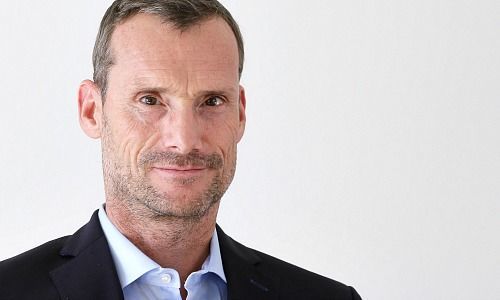Credit Suisse Seeks End of Skullduggery
Credit Suisse CEO Tidjane Thiam's integrity and the bank's reputation are still intact after a bumbled spy scheme: chairman Urs Rohner is plying a return to normal. It's not that simple, says finews.asia editor Peter Hody.
His surprise media briefing on Tuesday was vintage Urs Rohner. The Credit Suisse chairman took just 32 minutes of clinical, sharp, clear-eyed persuasion to make his case to the roughly 20 journalists on hand that the bank isn't in the midst of one biggest scandal in the recent history of Swiss banking.
In half an hour, Rohner described a bumbled Paradeplatz surveillance scheme on Iqbal Khan, who was defecting to rival UBS, the results of an investigation by white-collar law firm Homburger, and the consequences: operating boss Pierre-Olivier Bouée fell on his sword, and Credit Suisse's security chief will also leave.
Rohner conceded that the skullduggery was wrong and not in keeping with Credit Suisse's values. He shielded CEO Tidjane Thiam: the executive's integrity remains intact and he enjoys full board backing.
Round of Apologies
Rohner, formerly a brilliant litigator, also admitted that Credit Suisse's reputation had taken a major ding and he apologized: to Khan's family, as well as to the family of an external security consultant to Credit Suisse who, reportedly distraught over the public fallout from the scandal, died by suicide last week.
He left it to director John Tiner, who ran the British regulator before the financial crisis, to detail the Homburger findings made public on Tuesday. Rohner, Tiner, and Homburger lawyer Flavio Romerio took some media questions before disappearing.
Doubts Remain
The end? If Rohner, Credit Suisse's board, CEO Thiam, and Homburger's Romerio had their way – yes, certainly. The Khan surveillance scandal is cleared up, the bank took countermeasures, roundly apologized, and backed its CEO.
It's not that simple though: a host of questions and doubts remain over how much transparency Rohner – not an impartial observer to this whole mess – and the board are prepared to bring to the matter.
Defector's Fear
Homburger's mandate appears to have been delineated so strictly so as not to wander into what exactly Thiam and Khan fell out over – meaning, we don't know why Credit Suisse felt it necessary to hire a private detective to shadow the departing banker.
The investigation also left open the question of why Khan felt the need to hire private security staff – an unheard of measure in low-crime Switzerland – after he left Credit Suisse in July.
Trope of «Rogue» Staff
The findings fit what has become a well-worn trope in banking: a covert operation by one or two «rogue» employees, coordinated through Threema, an encrypted Swiss messaging service so as to leave no fingerprints on the bank's server (messages were also later erased), and in no way sanctioned by management.
The duo aimed to safeguard Credit Suisse's interests, but instead grossly violated the Swiss bank's culture and values. Fittingly, Homburger said it found no evidence that Khan had actually jeopardized the bank's interests during his extraordinarily short gardening leave (meaning, the Swiss banker didn't start trying to lure his former colleagues or any Credit Suisse clients over to UBS).
«Private» Bursts into Public
The investigation laid no blame with CEO Thiam, without addressing why it would occur to Bouee, a former McKinsey consultant, to go behind his CEO's back. The bank had initially deemed Khan's tailing a «private matter,» giving rise to the narrative of a dispute between the two over their shared property border in an upscale Zurich suburb as much as about power and influence at Credit Suisse.
It also handed out the private detective's report from the day of the confrontation with Khan to some media – it makes the narrative that Thiam was betrayed by two people he trusted hard to swallow. It is plain as day that Rohner had little choice but to back Thiam in order to appease several major shareholders who don't want the roller-coaster of a management change, and also to avoid an even bigger dent to the Swiss bank's already severely battered reputation.
Share of Blame
It feels like the gambling scene in «Casablanca» when Credit Suisse's chairman says he is «shocked and angry» to learn that a top executive had disregarded the bank's culture and values in orchestrating a covert scheme to shadow a departing colleague.
It also distracts from Rohner's full-throated support of a CEO whose management style, retinue, and willingness to conduct a bitter feud over power and influence within the bank had emboldened the deputy, Bouee, into anticipatory obedience.




























